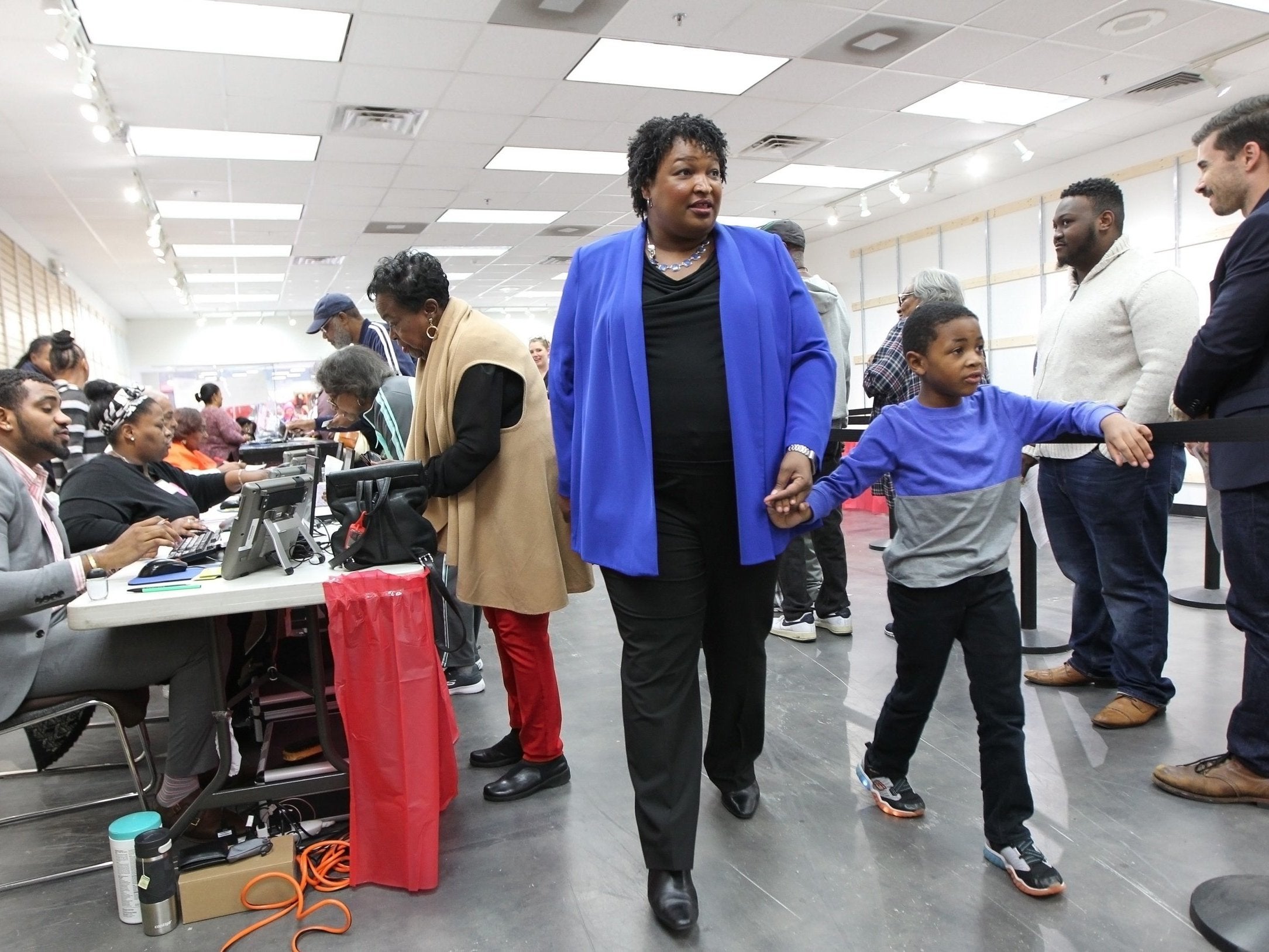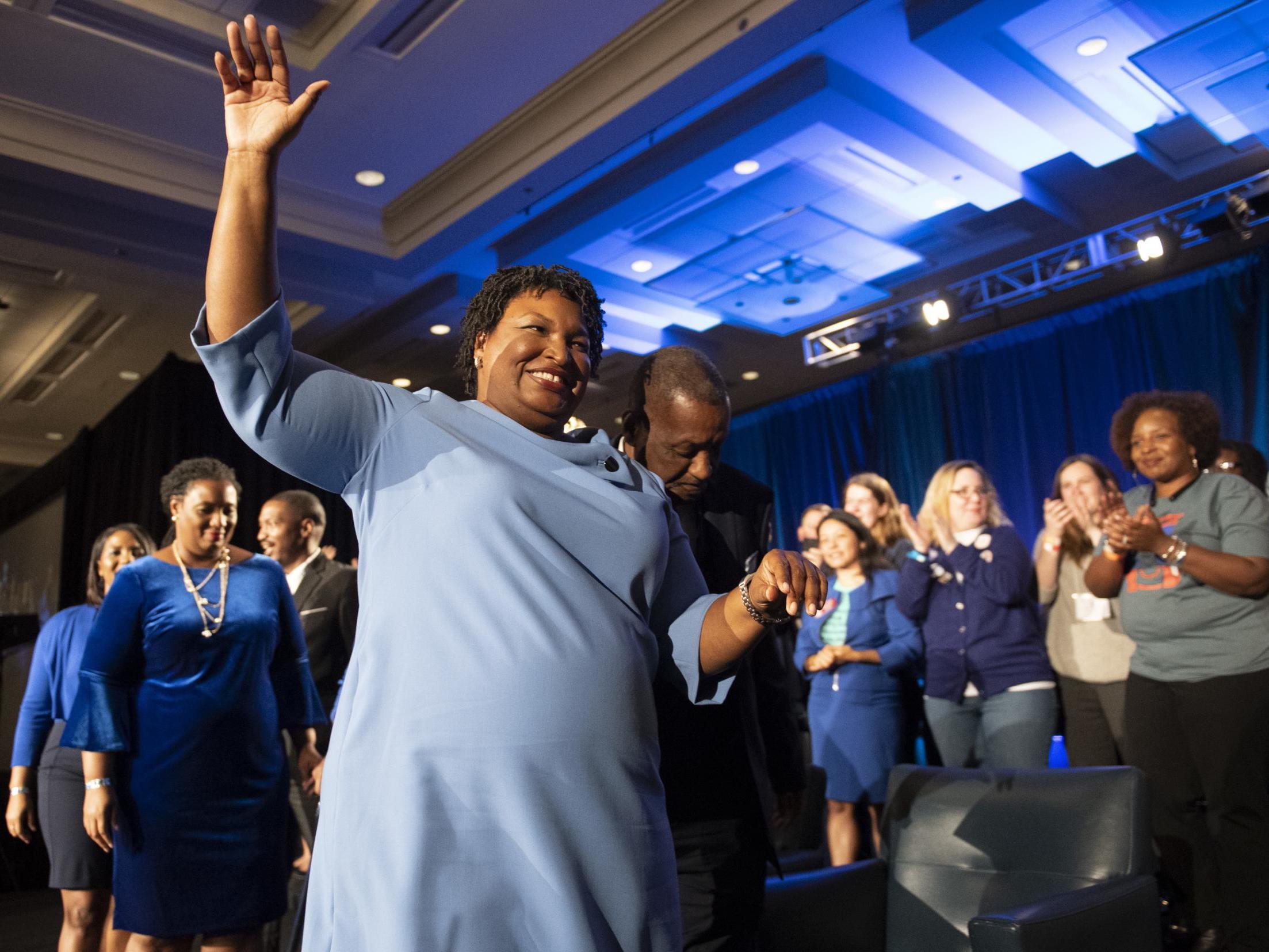Midterm elections: Georgia voting machines fail in majority black neighbourhoods sparking voter suppression claims
Georgians forced to queue for hours at polling stations

Your support helps us to tell the story
From reproductive rights to climate change to Big Tech, The Independent is on the ground when the story is developing. Whether it's investigating the financials of Elon Musk's pro-Trump PAC or producing our latest documentary, 'The A Word', which shines a light on the American women fighting for reproductive rights, we know how important it is to parse out the facts from the messaging.
At such a critical moment in US history, we need reporters on the ground. Your donation allows us to keep sending journalists to speak to both sides of the story.
The Independent is trusted by Americans across the entire political spectrum. And unlike many other quality news outlets, we choose not to lock Americans out of our reporting and analysis with paywalls. We believe quality journalism should be available to everyone, paid for by those who can afford it.
Your support makes all the difference.Several voters in majority black neighbourhoods throughout Georgia complained of broken voting machines during Tuesday's midterms among other issues perceived to be an attempt at voter suppression – an issue which plagued the main race in the state between Democrat Stacey Abrams and Republican Brian Kemp.
Ms Abrams, who was vying to become the country's first African American female governor, refused to concede to her opponent and the state's current secretary of state, saying votes "remain to be counted" despite more than 99 per cent of precincts having reported their results.
Her campaign is waiting for absentee ballots, particularly in heavily Democratic counties.
Mr Kemp's government office is in charge of monitoring state elections, including his own race, and critics have cried foul over missing power cords for ballot scanning machines and waits of up to three hours to vote.
Georgia's secretary of state, in his official capacity, had previously closed 8 per cent of the state's polling places, citing fiscal concerns.
Ms Abrams and others have said the efforts served to disenfranchise voters of colour.
In two instances rulings from federal judges were required. In one, approximately 3,600 new US citizens had asked for their ballots to be counted. The state's 159 separate county boards of elections use motor vehicle records to determine voter eligibility, but the records had not been updated with these voters' new citizenship status.
It resulted in their voter registrations initially being rejected. The judge ruled voters should be allowed to cast a ballot if they provide proof of their citizenship to a poll worker.
The second ruling said that more than 50,000 absentee ballots, filed by voters who are travelling or stationed abroad, should be counted after being initially rejected.
The Gwinnett County board of elections rejected the applications based on the state's "exact match" policy enacted by Mr Kemp, which required names on voter rolls and forms of identification to match even if slow updates of marriages, divorces, name changes – or human error due to manual entry – could have resulted in small differences.
Gwinnett County has one of the fastest growing minority populations in Georgia.
Fallon McClure, the Georgia state director for advocacy group Spread the Vote, previously told The Independent that as of 2006, the last time a comprehensive study was done in Georgia, at least 675,000 people lacked proper government-issued identification.
Last month an audio recording of Mr Kemp's remarks at a campaign event was leaked to Rolling Stone.
The Republican candidate could be heard discussing Ms Abrams' turnout operation, saying that it "continues to concern us, especially if everybody uses and exercises their right to vote".
Protect Democracy, a voter advocacy group, also filed an emergency lawsuit just hours before polls closed to prevent Mr Kemp from presiding over the race.

Campaigners from the organisation said that Mr Kemp maintaining his government position while running "violates a basic notion of fairness”.
If neither candidate wins 50 per cent of the vote they will face off once again in a runoff election on 4 December.
Join our commenting forum
Join thought-provoking conversations, follow other Independent readers and see their replies
Comments